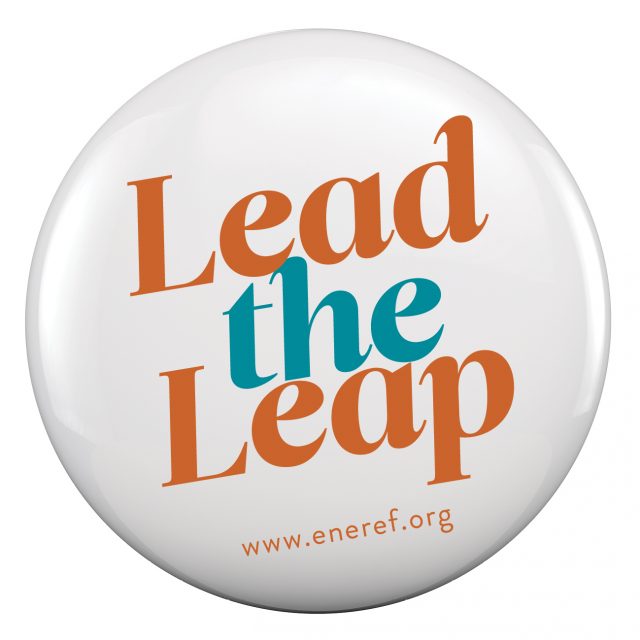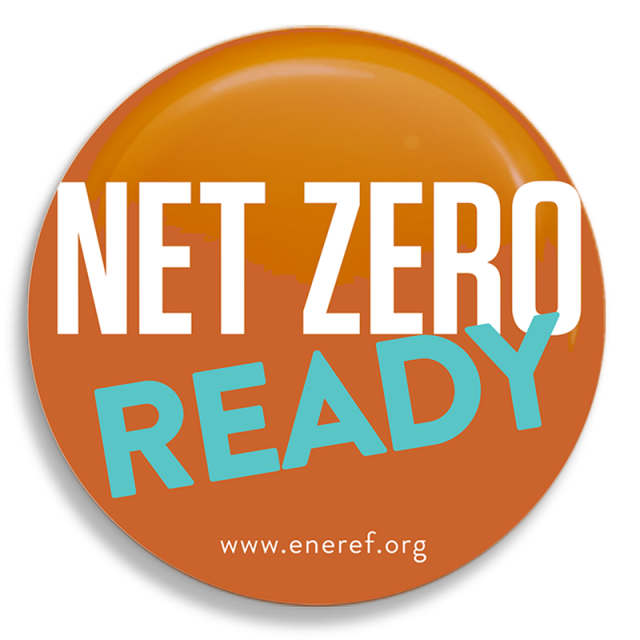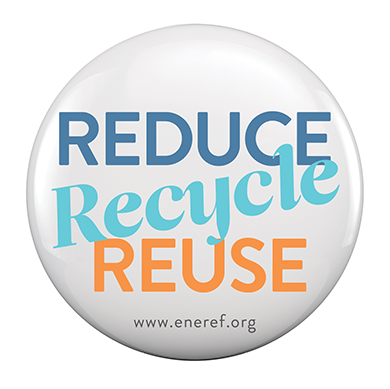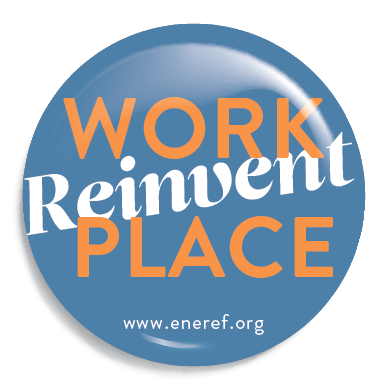Our Mission
We develop impactful campaigns that influence others, with messaging designed to build advocacy for common sense solutions that achieve effective results.
Our Methodology
We leverage the powerful potential of a market-driven economy to foster corporate social responsibility and a more efficient use of natural resources.
Latest News
New Program Director for Fostering Critical Dialogue
George Brown Appointed Program Director of Eneref Institute’s Fostering Critical Dialogue Initiative...
Eneref Skylight Shades Reports
Eneref Institute Launches Series of Reports on the Benefits of Room-Darkening Skylight Shades in Hom...
Eneref Announces Sustainable AI Initiative
Eneref Institute Announces Sustainable AI Initiative to Promote Energy Efficiency Through Artificial...
Eneref Distinction Honors Bold Investments in Energy Efficiency
Eneref Institute Announces Call for 2023 “Eneref Distinction” Nominations, Showcasing Effective Team...
تقرير Eneref عن شجرة القرم بالبنك الوطني السعودي
معهد إنريف يصدر تقريرًا رائدًا حول نجاح البنك الوطني السعودي في زراعة أشجار القرم...
Participate
We launch campaigns that spur decision-makers into action. We encourage participation and sponsorship in Eneref Campaigns from like-minded organizations and individuals. And we welcome opportunities to launch entirely new campaigns that echo our mission.
- 1Get Going
Ask your organization to get involved in an Eneref Campaign. Or if you at the beginning of your career, join our internship program.
- 2Ignite a Movement
- 3Get inspired
Learn from others. Sign up for one of Eneref Institute’s online Web Forums or in-person Seminars.
- 4Lead Others
- 5Influence Cause
Distribute our Advocacy Reports to influence better outcomes and cause someone to act in favor of people and planet before profit.
- 6Drive Change
Understanding the Market Obstacles to a healthy planet gives you the power to help drive change.
Eneref Distinction Honors Bold Investments in Energy Efficiency
The Eneref Distinction is designed to honor and celebrate companies that boldly invest in energy efficiency. This prestigious recognition is awarded to companies demonstrating both courage and creativity in their approach to reducing energy usage. It acknowledges those who dare to reimagine their business models and invest in advanced technologies, setting a new standard in operational efficiency and environmental stewardship.
The Eneref Distinction serves as a powerful incentive, encouraging businesses to prioritize sustainable practices. By showcasing successful examples of energy efficiency, the Eneref Distinction sets a benchmark, highlighting the critical role businesses play in combating climate change.
What We Amplify
Eneref Institute is grateful for the government, academic and industry leaders who participate in Eneref Impact Campaigns.
Eneref Impact Campaigns are designed to make headlines, create a common understanding of how to think about an issue and get people to take action. We look to cast issues in a different light. We encourage the understanding of measures required for conservation, as well as the propagation of important information through the media. Eneref uses campaigns to cooperate with governing agencies and organizations in developing educational and public awareness reports.
There’s one thing that you don’t want, it’s aggravation and unhappy customers, so you want to sell them a good product. That’s a good product.
I know about the filters because I’m friends with the custodian, but I don’t know if everyone else knows. It would make them feel like I feel—a little bit safer.
I think that the construction of the Velux skylights I specified in properties are just phenomenal. Just a beautiful piece of engineering. They're beautifully made… very thoughtful.
We absolutely love the Velux skylights in our artisan house. You can get really nice cross ventilation. You open up those skylights and it brings a gentle breeze right in that flows through the space.
Skylights are not that expensive. It’s a really nice way to add some additional natural light if someone’s interested in feeling more outdoor-indoor.
We should all have inverter-driven variable speed technology systems because we’d save energy and operating cost, be more comfortable, and reduce our carbon footprint. There’s really no downside.
The school facilities division is implementing a strategic approach to help maintain the health and safety of all building occupants.
Skylights add to the room’s aesthetic. Everybody who’s got a sunroom says it’s their favorite room in their house.
I couldn’t imagine buying a new vehicle under artificial lighting conditions.
We thought the modular skylight design was beautiful. And it also made for a much easier installation.
What I can tell you is that walking into every one of those dorm rooms, the cooling and ventilation worked really well.
It makes a huge difference. It’s way brighter in here, even on cloudy days.
They’re really, really fantastic. It’s the most dramatic room in the house.
We pulled the trigger on that cost because we felt that if we put windows in and they don’t look right, it’s gonna be a disaster we can’t recover from.
Most PTACs and VTACs can control temperature, but any humidity control is subsequent, or ancillary, to the temperature control. The Friedrich VRP unit specifically cools and addresses room humidity.
We love the room we have now and we’re glad that we did it.
A lot of manufacturers have no certification whatsoever and perform no testing. Hope’s tests everything; they spend a lot of money to acquire the right product certifications.
I’m so happy with the results that I’ll use the same skylights.
Before the skylights, I had a customer who said, ‘Is that color too vivid?’ But the car was gray.
Our engineering services team pushed for theses units. We wanted something over and above that would give us better air quality and better humidity control.
I don’t know of any individual room units that do a better job with ventilation air to dilute the concentration.
After attending a continuing education course on the importance of fall protection and the changing requirements of OSHA, we introduced the polycarbonate skylights to the district.
We felt the polycarbonate was a stronger, more durable product,
We recommend polycarbonate Prismatic skylights, especially in hail zone areas, where strength and safety are key,
Actually, it was seamless… a very easy installation.
We were looking for the best-looking, high-performance, most minimal skylight.
If the project is in a coastal area, I always recommend polycarbonate,
They delivered great value and were very responsive.
The more ventilation you provide, the lower the concentration of whatever contaminants there might be,
Fresh air gives an immediate feeling of clean, cool and calm — which is exactly the guest experience hotel owners want to give their guests,
UV absorbing cap layer in polycarbonate sheet is very effectively guards it against UV light.
The reason that the cars look better under natural light is that natural light has all of the wavelengths.
The skylights make a difference because you can see the natural color of the car better.
When you don’t control the amount of ventilation air that you have coming in, you spend extra money,. It’s expensive to take the humidity out if you don’t keep it out to begin with.
When I explained how these systems offer better humidity control and ventilation, they were convinced and then they really pushed for them.
The reason that the cars look better under natural light is that natural light has all of the wavelengths.
It was pretty close to just one shot and it’s done.
Color can be just as big a draw as the functional aspects of a car.
Adding more daylight helps our customers live more comfortably in their homes.
We’ve got buyers who recognized that if you reduce your dependence on electric lighting, and your dependence on the air conditioner because you are able to get good venting through skylights—that appeals to them.
These devices bring in a usable amount of light earlier and later in the day.
These windows can even let in fresh air when the homeowners are away from home, without them having to think about safety or weather.
But at 20 SEER, the efficiency of the unit is hard to deny.
Overall it’s great – the kids definitely enjoy having natural light in there, it’s just a much more natural feel.
This particular project was very efficient, but it also benefited from both better humidity control and better temperature control.
I would totally say it was worth it. The first time that I walked in, I loved it. It was so refreshing. I felt good immediately.
The benefits outweighed the cost. No matter what the price was, we wouldn’t have done it any other way. That’s how significant the impact is.
When we brought the unit to everybody’s attention, everybody thought, ‘Wow, this looks like a great unit.’ I think everybody knew that it combined everything we needed into one.
Even the steel doors — they’re balanced, yet they have a certain weight, a strength to the touch and feel of them.
Once I saw it, the skylight tied everything together and made the office look gorgeous.
Eneref Reports Build Confidence in Socially Responsible Solutions Through Independent Testimonials.
ENEREF INITIATIVES 2025-2026

Eneref Distinction
Eneref Institute’s award program honors companies that demonstrate a strong commitment to energy efficiency. This recognition serves as an incentive for businesses to invest in sustainable practices, highlighting their role in combating climate change. By showcasing the successes of these companies, the award not only celebrates their achievements but also sets a benchmark for others in the industry, encouraging a widespread adoption of energy-efficient technologies and practices. Learn More.
Critical Thinking
Eneref Institute’s initiative in critical thinking education equips individuals with the skills to deeply analyze and understand complex environmental challenges. By promoting critical thinking, we aim to foster a generation of informed, proactive citizens who can make sustainable choices and influence policy decisions. This educational approach not only empowers people with knowledge but also cultivates a sense of responsibility towards the planet, leading to more thoughtful and effective actions in pursuit of a sustainable future. Learn more.
Heat Pump Alliance
This alliance forms a collaborative network of heat pump manufacturers, focused on advancing sustainable energy solutions. By bringing together industry leaders, Eneref Institute fosters an environment of innovation and shared knowledge. This collaboration is crucial for the development and dissemination of efficient, renewable heating and cooling systems, playing a significant role in reducing carbon emissions and promoting sustainable living on a global scale. Learn more.
Eco Advocate Alliance
This initiative targets public relations firms, encouraging them to steer their clients towards sustainable practices. By influencing these key communicators, Eneref Institute aims to amplify the message of environmental stewardship across corporate sectors. This strategic approach leverages the influential power of PR to instigate positive changes in corporate behavior, promoting a culture of sustainability that can ripple through industries and lead to significant environmental improvements.. Learn more.















